London Book Fair 2024: Global Trends, Challenges, and Opportunities
 Copyright in the age of AI, free expression, and reclaiming the mantle of providing accurate, trustworthy information were among the topics covered at the panel "Exploring the Ever-Evolving World of Publishing: Global Trends, Challenges, and Opportunities" on Tuesday morning at the London Book Fair, moderated by Ed Nawotka of Publishers Weekly.
Copyright in the age of AI, free expression, and reclaiming the mantle of providing accurate, trustworthy information were among the topics covered at the panel "Exploring the Ever-Evolving World of Publishing: Global Trends, Challenges, and Opportunities" on Tuesday morning at the London Book Fair, moderated by Ed Nawotka of Publishers Weekly.
Karine Pansa, president of the International Publishers Association, called "copyright related to AI" one of the most important issues today: "Our content is being used without permission and without license by AI."
Ricardo Franco Levi, president of the Federation of European Publishers, applauded the European Parliament for the AI Act, which is in the process of being approved and adopted, saying the measure establishes a baseline for AI protections and helps put publishers "at the table" for defending against negative use of AI.
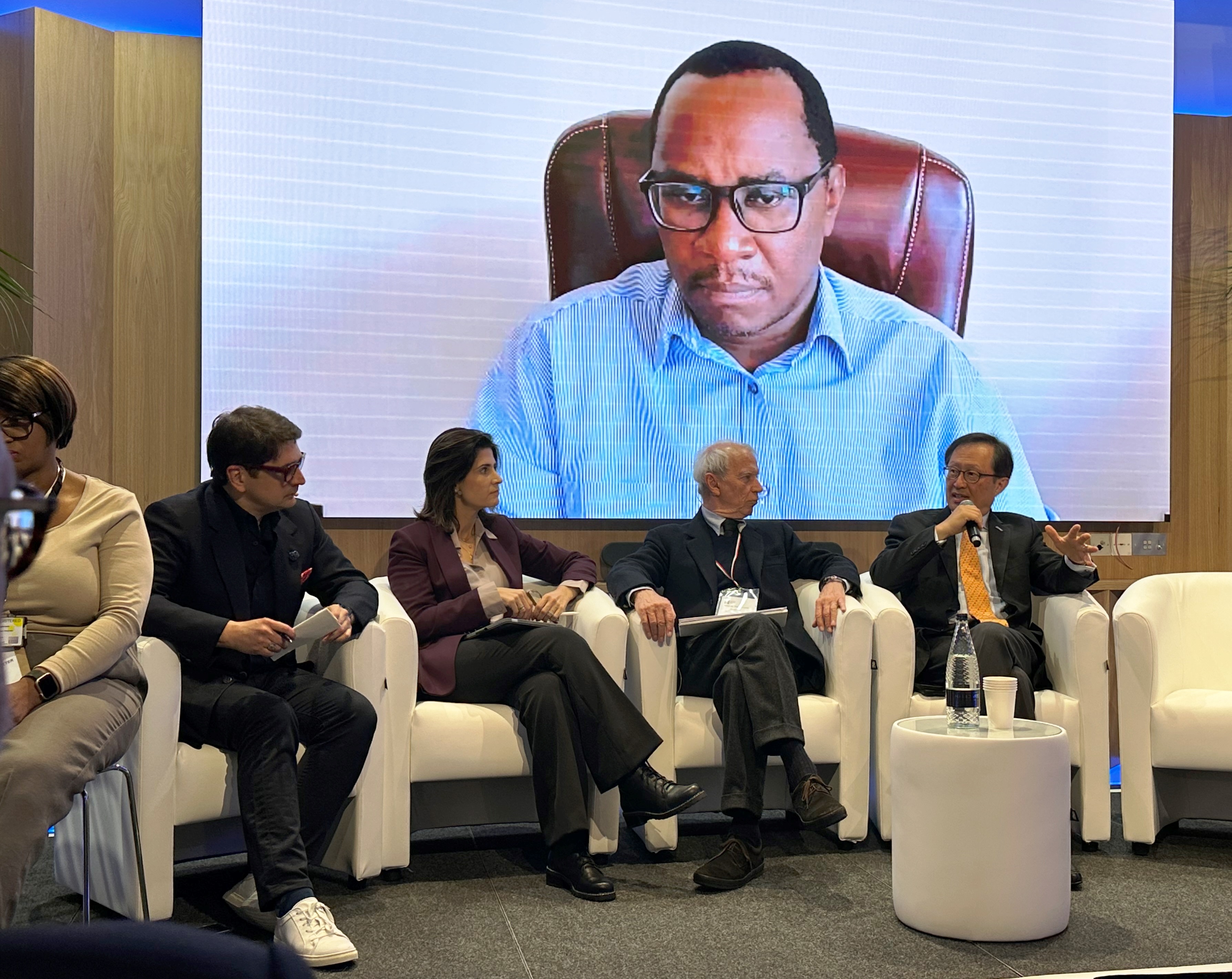 |
|
|
From l.: Ed Nawotka, Karine Pansa, Ricardo Franco Levi, Youngsuk 'YS' Chi, and (on screen) Lawrence Njagi. |
|
Youngsuk "YS" Chi, chairman of the Association of American Publishers and director of corporate affairs at RELX Group, also applauded the AI Act, but emphasized that beyond using copyright to protect content, book publishers "need to move forward ourselves" and highlight the issue of trust in a time when people have enormous and often free access to all kinds of material. "What we don't have is trust," he said. "And that's what we do. Those of us involved in publishing add trust to the material people access, and there is no value being granted for that by those who simply want volume and not quality. Tech firms want to scale things," and don't care if material is inaccurate or misleading or has other defects. "As long as there's traffic, they make money."
Chi added that with the wave of free access to so much material, people have forgotten the importance of trusted material--"until we get burned by the free stuff." He cited doctors, teachers, and lawyers who might hurt patients, students, and clients by using wrong material. He added that "it will take society a while to get over two decades of free stuff," which means "publishing has to stay steadfast to stay relevant" and convey the message that publishing supplies trustworthy material and that it "deserves a reward for what we put in."
Saying "we need to value the content that we do," Pansa echoed Chi, stating that publishers "have responsibility for the content we are editing and delivering, whereas big companies just publish in volume and don't care about what's being done there. We need to give more credit to our profession and the things we deliver to the public."
Levi noted also that, "rightly," book publishing currently is in a defensive mode, "but we must look forward because technology and innovation must be an ally of the publishing industry. We must not give up on that."
Levi emphasized, too, the importance of freedom to publish, and Pansa noted that besides copyright, the other "pillar" of the International Publishers Association is the freedom to publish. Threats to the freedom to publish is something that "we thought should be out of fashion," Pansa said. "But it's not at all. It's happening everywhere, every day."
Participating via an often uncooperative connection from Kenya, Lawrence Njagi, president of the African Publishers Network, said that in Africa, too, there are major problems with the accuracy of published materials, especially academic texts that are often "full of errors."
Njagi said that Africa has a lot of potential for publishers. At a time when many countries in Asia and Europe have declining populations, Africa has the fastest-growing youth population in the world. It also has myriad languages, approximately 2,000, and publishers don't publish titles in many of those languages. Even though Africa is an expanding market, he continued, "we see too little activity from European and Asian publishers."
Njagi noted, too, that Africa's young people are "very digitally involved. They are very quick on their phones and machines, as opposed to the older generation, who had to be taught how to use machines. This generation comes ready to use. If you're talking about the future, this is where the future is." --John Mutter







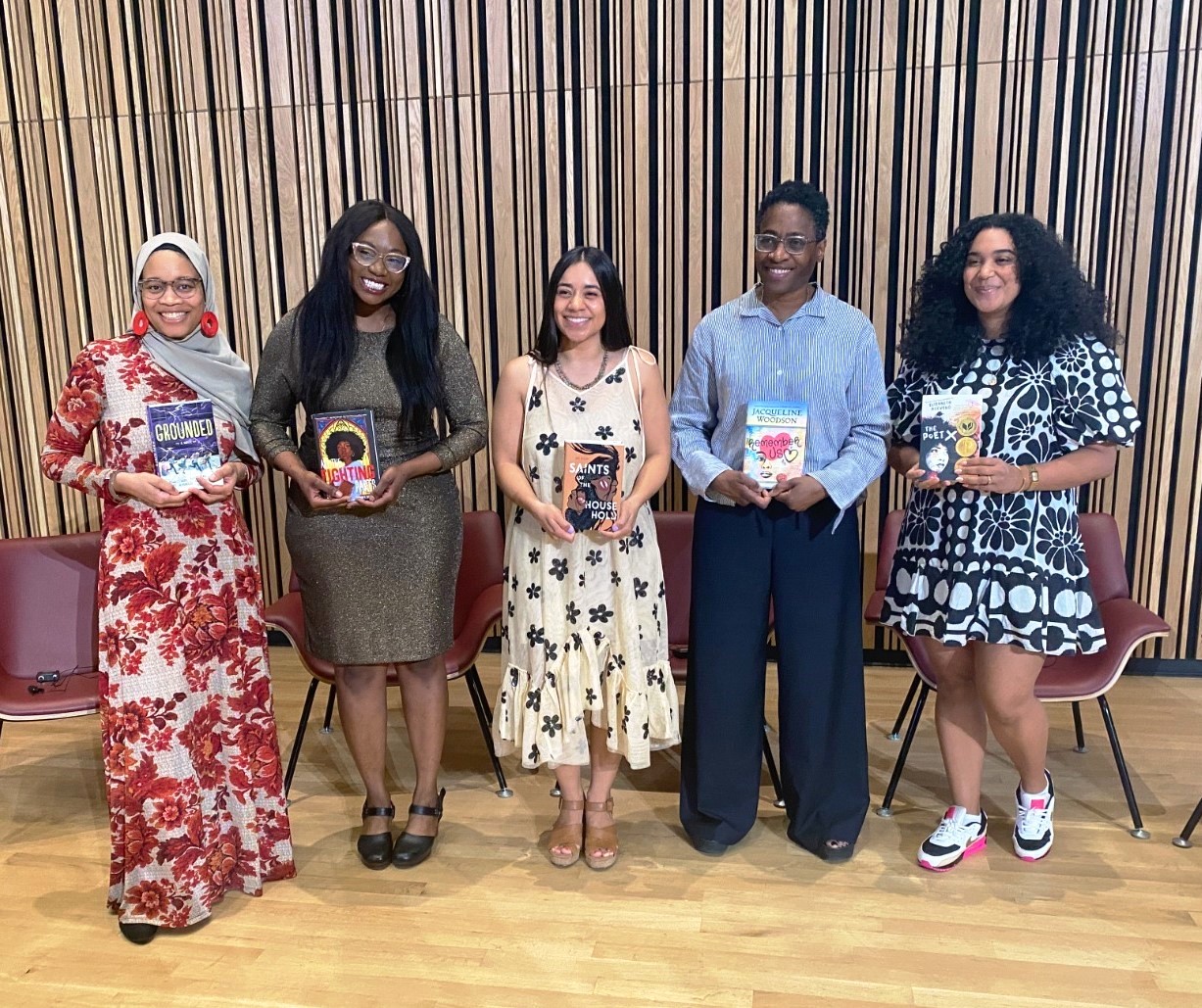
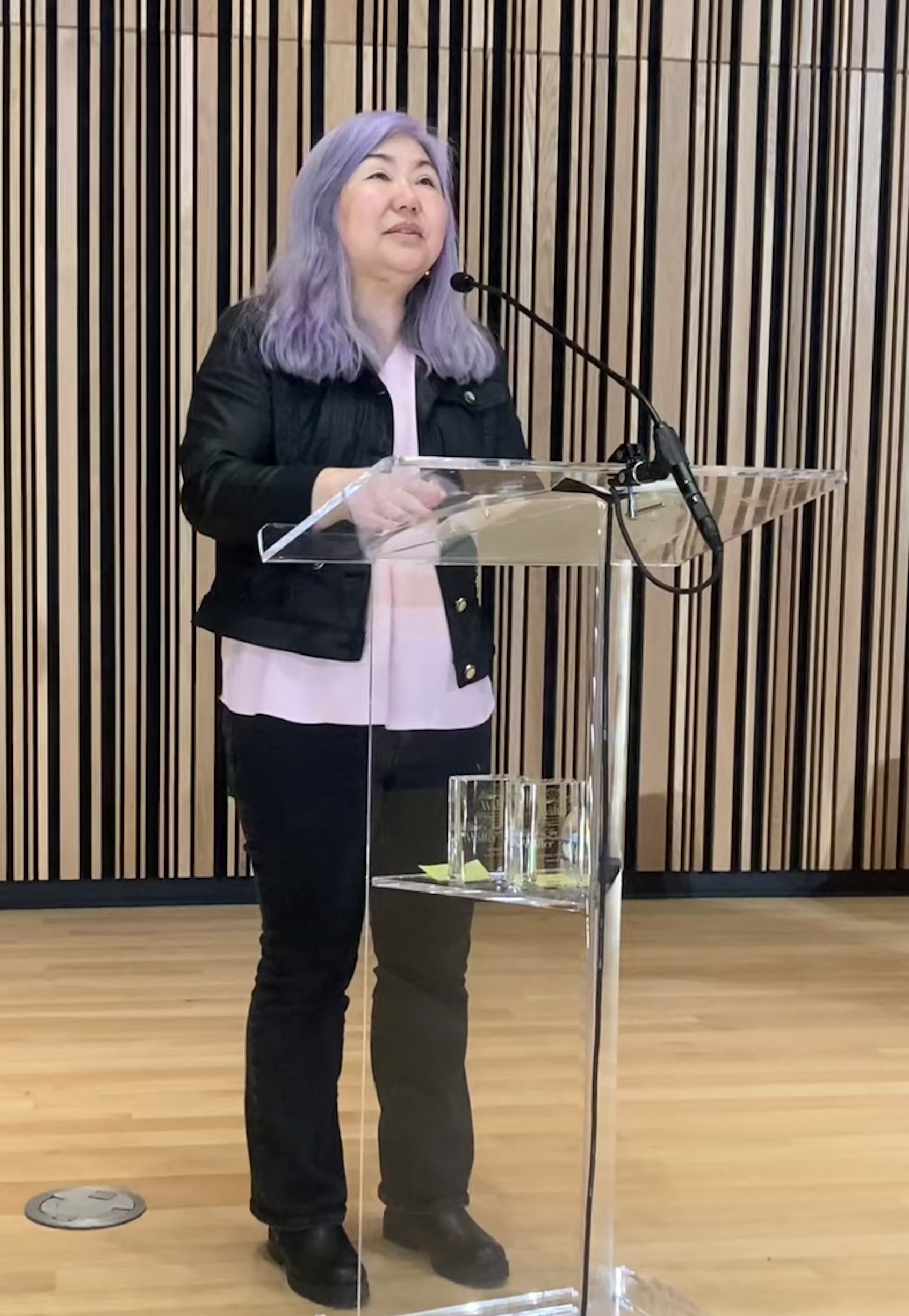
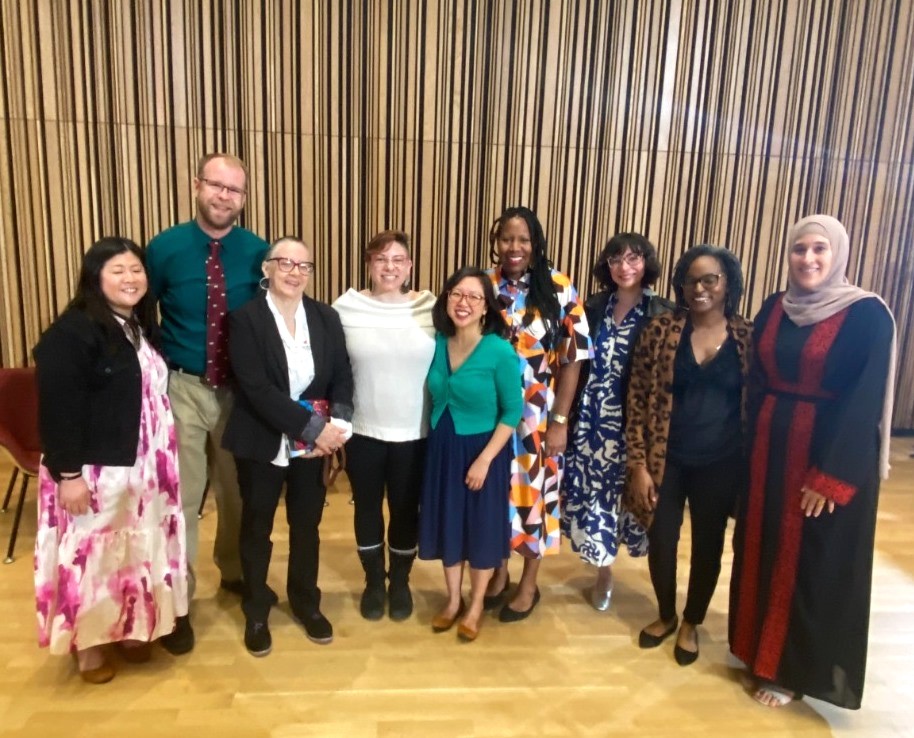
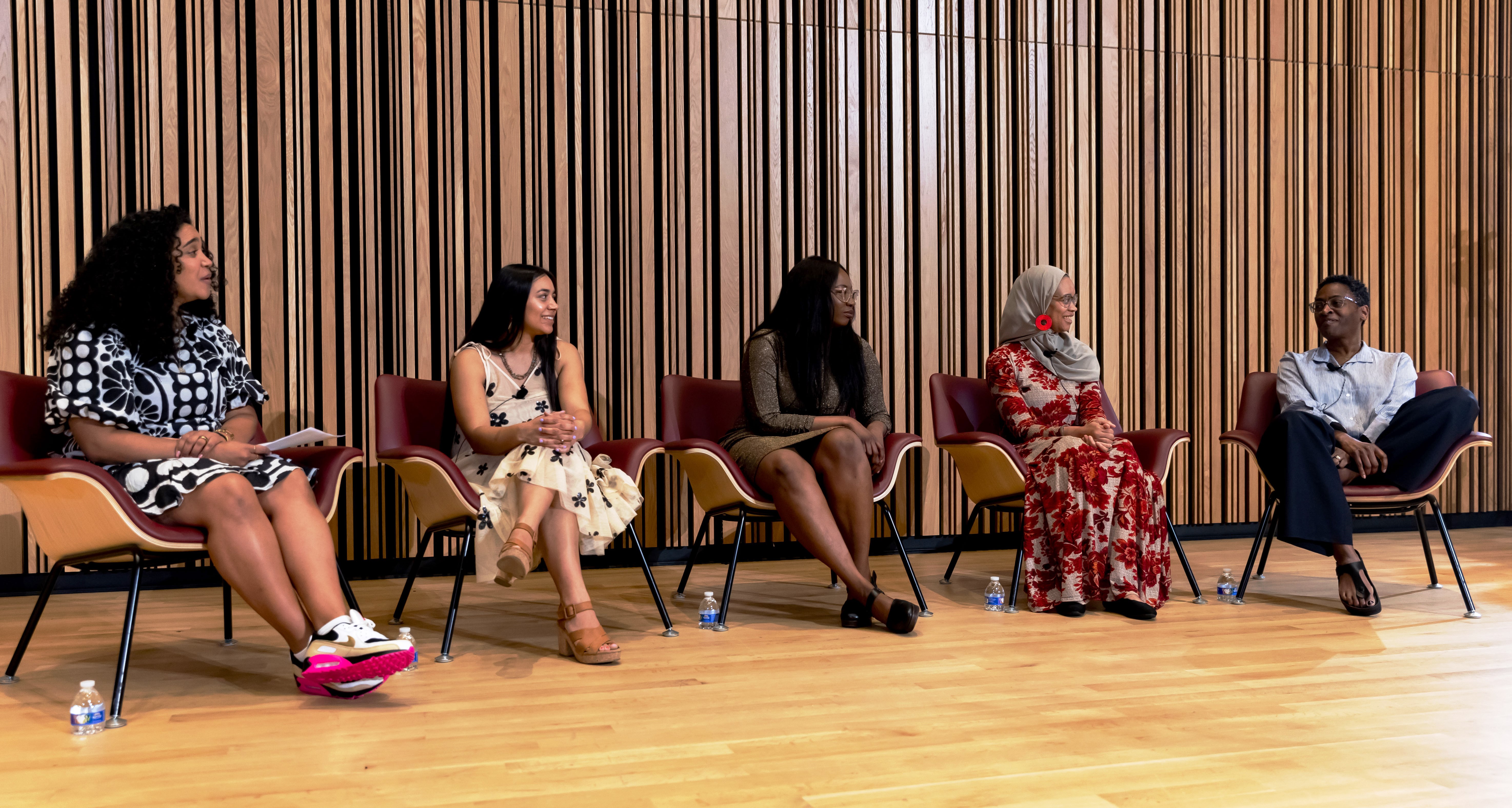


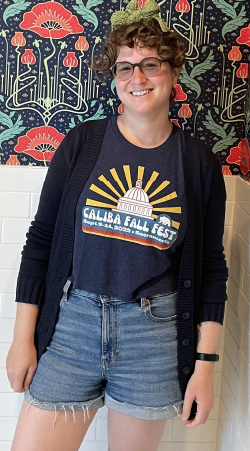

 "Happy Pi Day!!"
"Happy Pi Day!!"  "
"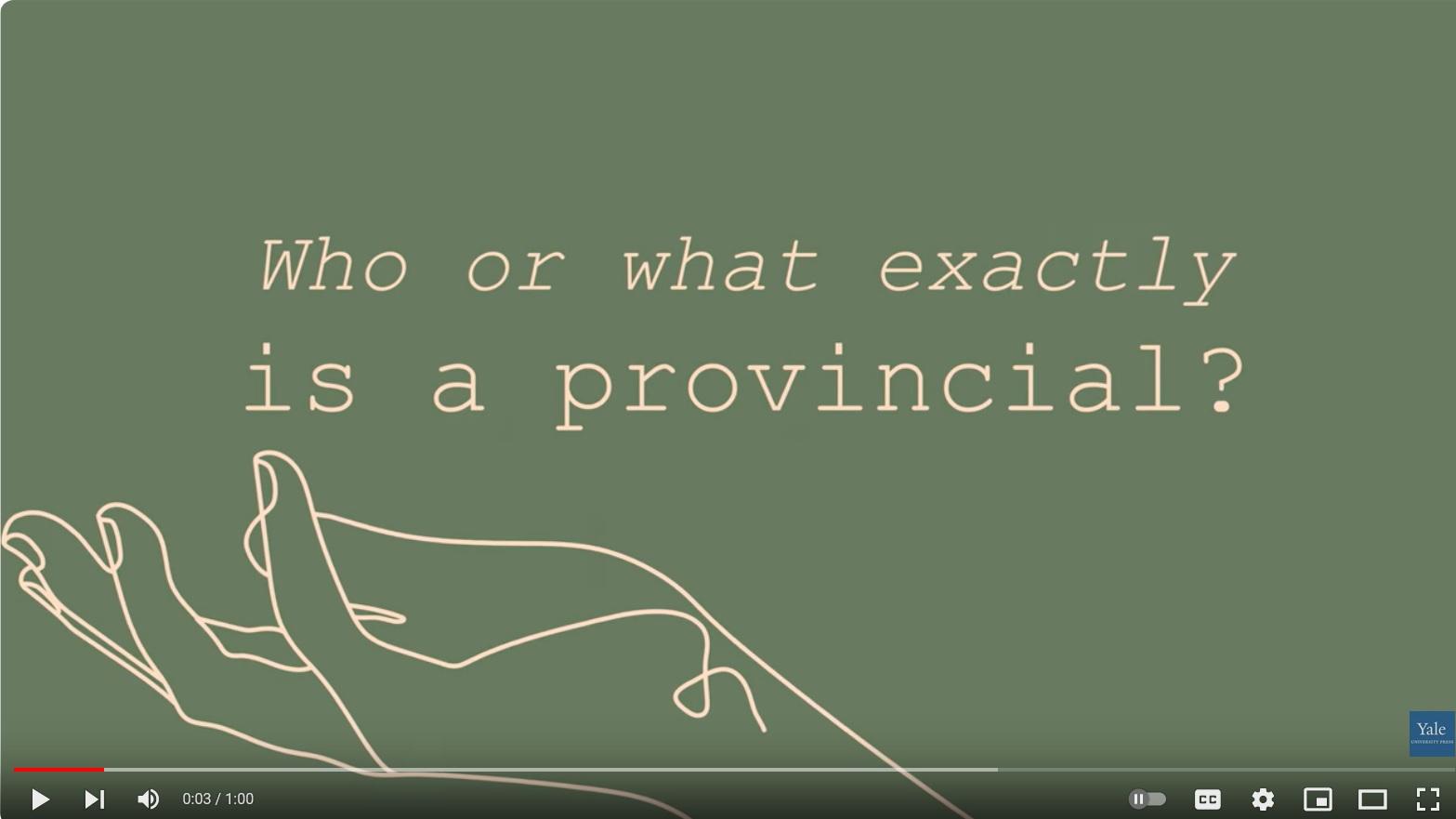 Provincials: Postcards from the Peripheries
Provincials: Postcards from the Peripheries Cyn Vargas's Nothing's Ever the Same is a starkly honest coming-of-age story told in the disarming voice of its 13-year-old protagonist. Simple but moving, this novella documents events that are traumatic but not unusual, thus marking the kinds of pain that are heartrending, as well as common, for a child approaching young adulthood.
Cyn Vargas's Nothing's Ever the Same is a starkly honest coming-of-age story told in the disarming voice of its 13-year-old protagonist. Simple but moving, this novella documents events that are traumatic but not unusual, thus marking the kinds of pain that are heartrending, as well as common, for a child approaching young adulthood.
 Among the many contributors to
Among the many contributors to